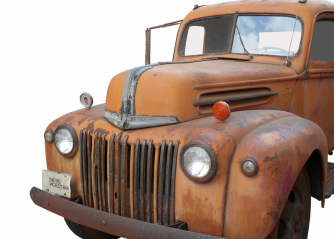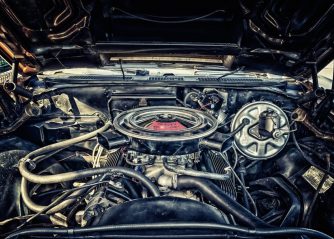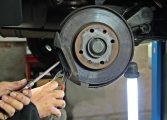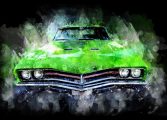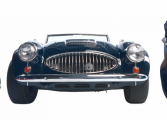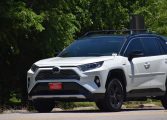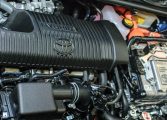Classic American cars have a rich history and continue to hold a special place in the hearts of car enthusiasts around the world

These iconic vehicles are known for their powerful engines, distinctive designs, and symbolize the American automotive industry’s glory days. In this comprehensive article, we will delve into the fascinating world of classic American cars, exploring their types, popularity, features, historical significance, and what factors drive enthusiasts to buy them.
I. Overview of Classic American Cars
Classic American cars refer to vehicles produced in the United States between the 1920s and the 1970s, commonly known as the ”Golden Era” of American automobile manufacturing. During this time, multiple manufacturers such as Ford, Chevrolet, Cadillac, and Chrysler, among others, were at their peak, and produced some of the most memorable cars in history. These vehicles helped shape the American car culture, embodying the nation’s spirit of innovation and individuality.
II. Comprehensive Presentation of Classic American Cars

Classic American cars encompass a wide range of styles, from full-size luxury sedans to powerful muscle cars and sleek convertibles. Some popular types include:
1. Muscle Cars: These high-performance vehicles, such as the Ford Mustang and Chevrolet Camaro, are known for their powerful engines, aggressive designs, and exceptional speed. They were widely embraced by the youth culture of the 1960s and 1970s.
2. Full-Size Sedans: Represented by models like the Cadillac DeVille and Chevrolet Impala, these cars offered spacious interiors, luxurious features, and a smooth ride. They were favored by families and businessmen for their comfort and style.
3. Convertibles: Classic convertible models, like the Ford Thunderbird and Chevrolet Corvette, provided the thrill of driving with the wind in your hair. They captured the essence of freedom and embody the American dream on the open road.
III. Quantitative Measurements of Classic American Cars
When discussing classic American cars, several quantitative measurements come into play, such as engine displacement, horsepower, and acceleration. These numbers provide enthusiasts with a tangible way to compare and evaluate different models. For instance, the Chevrolet Corvette from the 1960s boasted a V8 engine with a displacement of 327 cubic inches and produced 360 horsepoweran impressive figure for its time. These performance metrics continue to influence the desirability and value of classic American cars in today’s market.
IV. Distinguishing Features of Different Classic American Cars
Each classic American car has its own unique features that set it apart from others within its category. For example:
1. Styling: Vehicles like the Cadillac Eldorado showcased dramatic tail fins and chrome accents, embracing a futuristic aesthetic. On the other hand, muscle cars like the Plymouth Barracuda featured aggressive bodylines and bold grilles, exuding power and masculinity.
2. Engine Technology: Classic American cars saw advancements in engine technology, such as the introduction of fuel injection systems in the Chevrolet Corvette and the implementation of superchargers in the Ford Thunderbolt. These innovations influenced performance and propelled these vehicles into legendary status.
V. Historical Analysis of Pros and Cons of Different Classic American Cars
When comparing classic American cars, it becomes clear that each model has its own set of advantages and disadvantages. For instance:
1. Muscle Cars: While muscle cars offered exhilarating performance and a sense of rebellion on the road, they often lacked fuel efficiency and had limited handling capabilities.
2. Full-Size Sedans: These cars provided luxurious comfort and ample seating space. However, their size made them less maneuverable, and their fuel consumption was generally higher compared to smaller vehicles.
VI. Key Factors Influencing Car Enthusiasts’ Decisions
When it comes to purchasing classic American cars, several factors play a crucial role in the decision-making process for car enthusiasts. These factors include:
1. Rarity and Condition: Rarity and pristine condition significantly contribute to a classic car’s value and desirability. Limited production numbers and well-preserved originals hold a special appeal for collectors.
2. Brand Reputation: Established brands like Ford and Chevrolet have a strong following due to their long-standing history and proven track record of producing reliable and iconic vehicles.
3. Personal Connection: Many car enthusiasts have a personal connection or emotional attachment to a particular model, often influenced by childhood memories, significant life events, or a family connection. This sentimental factor can heavily influence their buying decision.
[INSERT VIDEO(S) HERE]
In conclusion, classic American cars represent a captivating era in the automotive industry, celebrated for their distinctive designs, impressive performance, and historical significance. The diverse range of styles and types provides endless options for collectors and enthusiasts alike. The allure of these vehicles lies in their ability to transport us back to a time when American automakers reigned supreme and driving was considered an art form. Whether it’s the roar of a muscle car or the elegance of a full-size sedan, classic American cars continue to captivate and inspire generations of car lovers worldwide.

